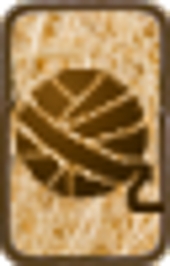
 1
1




“We can complain because rose bushes have thorns, or rejoice because thorn bushes have roses.” — Abraham Lincoln
 1
1




![Filename: systemic.jpeg
Description: [Thumbnail for systemic.jpeg]](/t/121030/a/86476/systemic.jpeg)
Idle dreamer
 7
7




"Study books and observe nature; if they do not agree, throw away the books." ~ William A. Albrecht
 2
2





 1
1




List of Bryant RedHawk's Epic Soil Series Threads We love visitors, that's why we live in a secluded cabin deep in the woods. "Buzzard's Roost (Asnikiye Heca) Farm." Promoting permaculture to save our planet.




A human being should be able to change a diaper, plan an invasion, butcher a hog, conn a ship, design a building, write a sonnet, balance accounts, build a wall, set a bone, comfort the dying, take orders, give orders, cooperate, act alone, solve equations, analyze a new problem, pitch manure, program a computer, cook a tasty meal, fight efficiently, die gallantly. Specialization is for insects.
-Robert A. Heinlein
 3
3




“We can complain because rose bushes have thorns, or rejoice because thorn bushes have roses.” — Abraham Lincoln












 2
2




List of Bryant RedHawk's Epic Soil Series Threads We love visitors, that's why we live in a secluded cabin deep in the woods. "Buzzard's Roost (Asnikiye Heca) Farm." Promoting permaculture to save our planet.
 5
5




"The rule of no realm is mine. But all worthy things that are in peril as the world now stands, these are my care. And for my part, I shall not wholly fail in my task if anything that passes through this night can still grow fairer or bear fruit and flower again in days to come. For I too am a steward. Did you not know?" Gandolf




Marco Banks wrote:I've read that the half-life of Round-Up is about 3 years. Yikes. There is the initial plant-killing effect, but then the residual effects hang around for years. As a former user of the stuff ("What's the harm?"), I attribute the residues of Round-Up to the death of 3 or four of my trees. My bad -- lesson learned the hard way.”
It could be worse, I fear Roundup was a contributing factor in my mother’s death by cancer. She sprayed miles of ditch bank.






 2
2




Other people may reject you but if you lie in the forest floor for long enough the moss and fungi will accept you as one of their own!
 1
1




 1
1




I soaked orange peels in vinegar for a month, strained it, addid citric acid and dish soap, and sprayed it on weeds. It worked, but i generally find it easier to just yank them or hit them with the weed whacker. Or just let them grow.Dennis Bangham wrote:I have seen where people will use a mixture of pool salt, vinegar and dish soap to control weeds. I would not think this combination has any lasting ill effects but ti also may take several applications.
Has anyone used this mix with success?
 1
1




“We can complain because rose bushes have thorns, or rejoice because thorn bushes have roses.” — Abraham Lincoln












 1
1




List of Bryant RedHawk's Epic Soil Series Threads We love visitors, that's why we live in a secluded cabin deep in the woods. "Buzzard's Roost (Asnikiye Heca) Farm." Promoting permaculture to save our planet.






 1
1




Other people may reject you but if you lie in the forest floor for long enough the moss and fungi will accept you as one of their own!












 4
4




List of Bryant RedHawk's Epic Soil Series Threads We love visitors, that's why we live in a secluded cabin deep in the woods. "Buzzard's Roost (Asnikiye Heca) Farm." Promoting permaculture to save our planet.




“We can complain because rose bushes have thorns, or rejoice because thorn bushes have roses.” — Abraham Lincoln

|
Wink, wink, nudge, nudge, say no more, it's a tiny ad:
Looking for cold-climate growers to join a GOOF livestream panel (Missoula)
https://permies.com/t/369111/cold-climate-growers-join-GOOF
|



